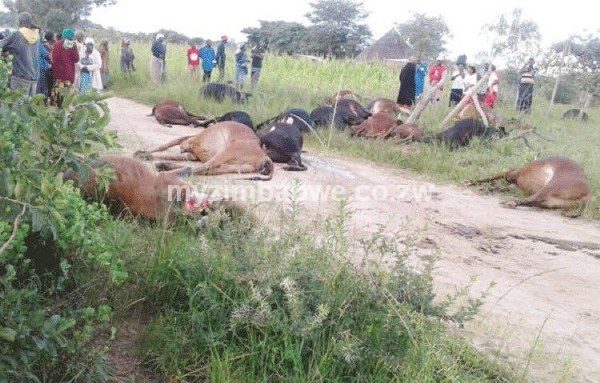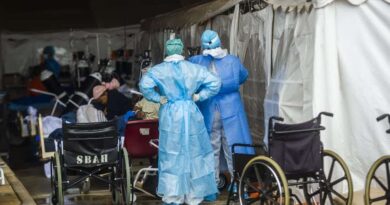Farmers urged to destock in face of drought
Chief livestock officer in the Department of Livestock Production and Development Wisdom Gunzvenzve has tipped farmers with measures to manage livestock during El Nino induced drought.
Gunzvenzve said there were measures farmers could take to overcome the situation they are faced with regarding the impending drought. He also said the El Nino caused water shortages to livestock, especially cattle, was the reason why livestock farmers ought to reduce the distance livestock have to endure searching for water.
“El Nino is likely to cause water shortages for our livestock, especially cattle and as farmers we are urged to reduce the distance livestock move searching for water.
“The other thing is that livestock ends up being trapped in mud trying to seek for water,” Gunzvenzve said.
He added that farmers should build troughs at community boreholes to avail water to livestock.
He said farmers should know the difference between productive and non-productive livestock, saying farmers should sell non-productive animals to save productive animals.
“Also the other action that farmers need to take is the element of destocking. As farmers we have non-productive and productive animals and would try to sell non-productive animals so that we save on productive animals.
“Productive animals are the breeding animals; the heifers and the cows, animals involved in draft power and farmers should save those animals as they destock non-productive animals.
“Money gotten from selling those animals can be used to buy feed for the remaining animals or even constructing boreholes. Livestock farmers sometimes fail to realize how rich they are in terms of conversion of their livestock into monetary terms,” said Gunzvenzve.
Farmers need to identify relief grazing sites in their areas and they should work with veterinary services to prevent the spreading of diseases from one area to another.
“Farmers also need to identify relief grazing sites near their areas, doing this in conjunction with veterinary officers so that diseases do not spread from one area to another,” said Gunzvenzve.
He also spoke on the impact of veld fires on grazing land, which is a perennial cause for concern, urging farmers to work with relevant departments to avert this scourge.



